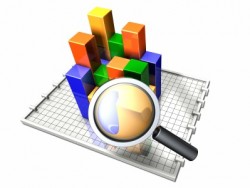How Reporting And Analytics Differ and Why They Are Both Important: Part 2
 In part one of this series we took a look at how reporting and analytics differ. Now we look at why they are both important:
In part one of this series we took a look at how reporting and analytics differ. Now we look at why they are both important:
Both reporting and analytics are important to organizations because you can’t have one without the other. Reporting is the art of taking raw data and organizing it into a readable form, which will allow the data to be better analyzed. Analytics is the process of taking the raw data that is organized within the reports and fully analyzing it for a variety of purposes that will ultimately benefit the organization. Here’s more detail as to why both are so important:
Highlight the Important Questions
When data is displayed in the reports, it can draw attention to the important questions that need to be asked in order to make the business more effective. This is done because the reports show what is actually happening within enterprise, which will lead to questions related to why they are actually happening.
As you begin to wonder why the numbers are the way they are, you will want to explore these questions in greater depth so that you can eventually uncover what can be done about it. Reporting is the process of uncovering the questions, while analytics is the process of finding both the answers and the solutions that will propel the business forward.
Use Both to Increase Profitability
As an enterprise, your main goal is to find new ways to drive more business by increasing leads and sales while also cutting costs. In other words, the ultimate goal of reporting and analytics is to find new ways to increase your profitability. In order to do this, you need to weigh the actual data against what your targets are. What do you need to do in order to increase your leads and sales? Can you find ways to cut costs? The reports may also uncover new markets you can target and help find ideas for new products. For instance, your reports may show that several warehouses are constantly experiencing stock-outs. Through analytics, you will be able to figure out how much stock each warehouse will need to prevent this from happening, which will help increase profitability.
Help You Determine Past Performance
Through reports, you will be able to determine how well your enterprise has performed in the past and then analytics will help you take this information and apply it to future business performance. For example, the reports will highlight which products you have that are the most profitable. Through analytics, you’ll be able to determine how likely it is that a customer will purchase a certain product the next time they visit your store. While reporting shows you the actual facts of how well your products are performing, analytics will help make predictions for future performance based on the past.
As you can see, both reporting and analytics are essential to your enterprise. By analyzing the reports, it shows that those high up in the organization are committed to securing long term growth and display an overall willingness to focus on the business on a strategic level.